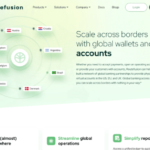Opening a bank account abroad might seem daunting, but with the right preparation, it can be a smooth process. This guide unravels the complexities, from understanding the diverse documentation requirements across different countries to navigating the nuances of various account types and choosing the ideal bank for your needs. We’ll equip you with the knowledge to confidently manage your finances while living or working internationally, covering everything from international transfers to safeguarding your account against fraud.
We’ll explore the essential documents needed, the different types of accounts available, and the factors to consider when selecting a financial institution. We’ll also walk you through the step-by-step process of opening an account, offering practical tips and addressing potential challenges along the way. Finally, we’ll delve into the legal and tax implications of holding a foreign bank account, ensuring you’re fully informed and prepared for a seamless international banking experience.
Managing Your Bank Account Abroad

Successfully navigating the complexities of banking while living or working abroad requires proactive planning and a thorough understanding of the available tools and services. This section details essential strategies for managing your international bank account, ensuring both security and efficiency.
Remote Account Access and Management
Accessing and managing your account remotely is crucial for convenience and control. Most international banks offer robust online and mobile banking platforms. These platforms typically provide features such as account balance checks, transaction history reviews, bill payments, and fund transfers. Many banks also offer multi-factor authentication (MFA) for enhanced security. It is essential to familiarize yourself with your bank’s specific online and mobile banking capabilities and security protocols upon account opening.
Regularly reviewing your account statements for any unauthorized transactions is also a vital aspect of remote account management.
Currency Exchange and International Transfers
Managing currency exchange and international transfers efficiently is key to minimizing costs and maximizing your funds. Understanding exchange rates and associated fees is critical. Banks typically offer different exchange rates and transfer fees, so comparing options is recommended. Consider using online currency converters to track exchange rates and compare bank offerings. When initiating international transfers, it’s important to provide accurate and complete recipient information to ensure timely and successful transactions.
Utilizing wire transfers or dedicated international transfer services may offer competitive rates and faster transfer times, although associated fees should be carefully considered.
Account Security and Fraud Prevention
Protecting your bank account from fraud requires vigilance and the implementation of robust security measures. Regularly review your account statements for any suspicious activity. Report any unauthorized transactions to your bank immediately. Strong passwords, incorporating a mix of uppercase and lowercase letters, numbers, and symbols, are essential. Enable MFA whenever possible.
Be wary of phishing scams and avoid clicking on suspicious links or providing personal information via unsolicited emails or messages. Consider setting up transaction alerts to receive notifications of account activity. Understanding your bank’s fraud prevention policies and reporting procedures is vital in case of a security breach.
Closing a Bank Account Abroad, Opening A Bank Account Abroad
Closing a bank account abroad involves a specific procedure that varies depending on the bank and the country. Typically, you’ll need to contact your bank directly, either in person or via phone or email, to initiate the closure process. You may need to provide documentation, such as identification and proof of address. Ensure all outstanding transactions are settled before closing your account.
Confirm the process for receiving any remaining funds. Obtain written confirmation from the bank that your account has been successfully closed. This documentation will serve as proof of account closure, which can be useful for various purposes, including tax reporting.
Legal and Tax Implications

Opening a foreign bank account introduces a layer of complexity concerning legal and tax obligations. Understanding these implications is crucial to avoid potential penalties and ensure compliance with both your home country’s and the foreign country’s regulations. Failure to adhere to these rules can lead to significant financial and legal repercussions.
Foreign Account Reporting Requirements
Many countries require citizens and residents to report their foreign bank accounts and financial assets to their tax authorities. These reporting requirements vary widely depending on the country of residence and the value of the assets held abroad. The purpose of these reporting requirements is to ensure transparency and prevent tax evasion. For example, in the United States, the Foreign Bank Account Report (FBAR) requires individuals with aggregate foreign financial accounts exceeding $10,000 at any point during the calendar year to file a report.
Similarly, the UK requires reporting of foreign income and assets through its self-assessment system. Failing to meet these reporting deadlines can result in substantial penalties.
Impact on Tax Residency and Filing Obligations
Holding a foreign bank account can impact your tax residency status, particularly if you spend a significant amount of time in the foreign country. Tax residency determines which country has the right to tax your worldwide income. Different countries have varying rules defining tax residency, often based on factors like the number of days spent in the country, the location of your permanent home, and your center of vital interests.
A change in tax residency can significantly alter your tax filing obligations, requiring you to file tax returns in both your home country and your new country of tax residence. This can necessitate navigating complex tax treaties to avoid double taxation.
Potential Penalties for Non-Compliance
Non-compliance with foreign account reporting requirements and tax laws can result in severe penalties. These penalties can include substantial fines, interest charges, and even criminal prosecution in some cases. The severity of the penalties varies depending on the jurisdiction and the nature of the violation. For instance, failing to file an FBAR in the US can result in significant penalties, potentially reaching 50% of the balance in the unreported account.
Similar penalties exist in other countries for non-compliance with their respective tax laws. Therefore, proactive compliance is essential to mitigate these risks.
Tax Implications in Different Countries
| Country | Tax Reporting Requirements | Implications for Tax Residency | Potential Penalties for Non-Compliance |
|---|---|---|---|
| USA | FBAR (Foreign Bank Account Report), FATCA (Foreign Account Tax Compliance Act) | Tax residency determined by substantial presence test or green card status; impacts worldwide income taxation. | Significant fines, interest, and potential criminal prosecution. |
| UK | Self-assessment tax return; reporting of foreign income and gains. | Tax residency determined by statutory residence test (SRT); impacts worldwide income taxation for UK residents. | Penalties including fines and interest charges; potential criminal prosecution for serious offenses. |
| Canada | Reporting of worldwide income on tax return; requirements under the Canada Revenue Agency (CRA). | Tax residency determined by the substantial residential tie test; impacts worldwide income taxation for Canadian residents. | Penalties including fines and interest charges; potential criminal prosecution for tax evasion. |
Illustrative Examples of Bank Account Opening Experiences: Opening A Bank Account Abroad
Opening a bank account abroad can be a straightforward process or a frustrating ordeal, depending on various factors including the country, the bank, and the applicant’s circumstances. The following examples illustrate two contrasting experiences, highlighting the potential ease and difficulties involved.
Positive Experience: Opening a Bank Account in Singapore
My experience opening a bank account with DBS Bank in Singapore was remarkably smooth. I had already secured a job and obtained an employment pass, which simplified the process significantly. The bank’s online application portal was intuitive and user-friendly. I uploaded the required documents – passport, employment pass, and proof of address – and completed the application within 30 minutes.
I received an email confirmation within 24 hours, scheduling an appointment at a nearby branch for identity verification. The appointment itself lasted less than 15 minutes; the bank staff were professional and efficient, and my account was activated immediately. I received my debit card a few days later via mail. The entire process was transparent, efficient, and hassle-free, demonstrating the effectiveness of a well-organized and technologically advanced banking system.
The clear instructions on the bank’s website, combined with the prompt and helpful service from the bank staff, contributed significantly to a positive experience.
Negative Experience: Opening a Bank Account in Italy
In contrast, my attempt to open a bank account in a small town in Italy proved to be a significantly more challenging endeavor. Unlike the streamlined online process in Singapore, this involved multiple in-person visits to the local branch of a smaller Italian bank. The initial application required filling out numerous paper forms, some in Italian, which I had to translate with the assistance of a local friend.
The bank staff’s English proficiency was limited, leading to communication difficulties. They requested additional documents that weren’t clearly specified in the initial application, necessitating further trips to the bank and significant delays. The verification process took several weeks, and the account activation was further delayed due to unexplained bureaucratic hurdles. The lack of clear communication and the prolonged waiting periods significantly impacted my ability to manage my finances effectively during my initial months in Italy.
The overall experience underscored the potential challenges of navigating less digitized banking systems and language barriers when opening an account abroad.
Opening a bank account abroad is a significant step, whether you’re relocating, traveling extensively, or managing international finances. By understanding the requirements, choosing the right bank, and diligently managing your account, you can successfully navigate the process and enjoy the benefits of seamless international banking. Remember to prioritize security, stay informed about legal and tax implications, and proactively address any challenges that may arise.
With careful planning and the right knowledge, opening a bank account abroad can be a straightforward and empowering experience.

